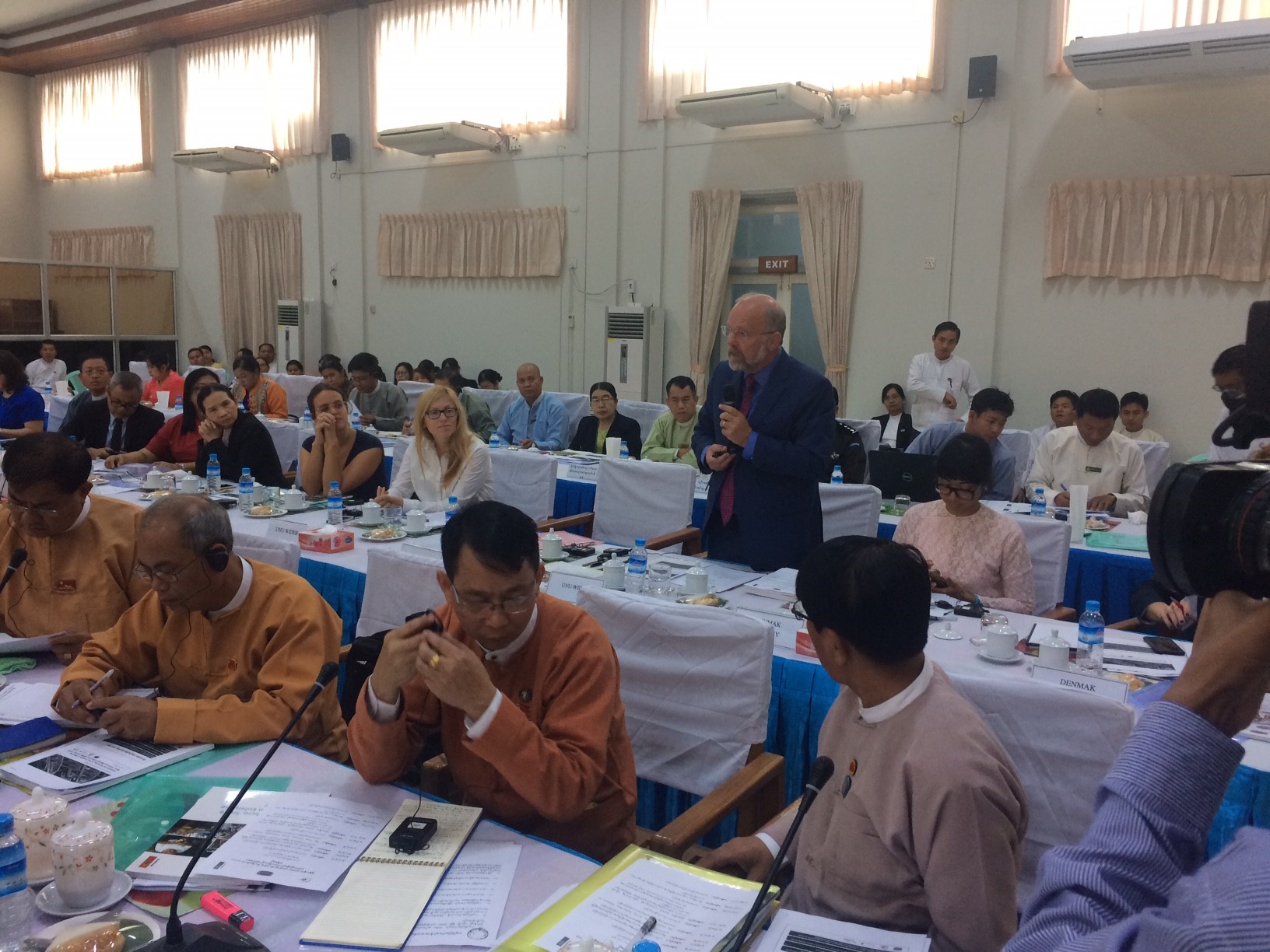Blog
Comprehensive policy change needed in Myanmar to support structural transformation
Insights from the Myanmar Micro, Small and Medium Enterprise Survey 2017
The Myanmar Micro, Small and Medium Enterprise Survey 2017 shows that there is a need for comprehensive and immediate change in industrial, financial, and educational policies in Myanmar to support structural change and increase economic growth.
Small and medium-sized enterprises (SMEs) play an important part in any economy, but in developing countries they have a vital role in providing livelihoods and improving the wellbeing of citizens. When UNU-WIDER started the project Towards Inclusive Development in Myanmar in 2017, as international research partners together with the Central Statistical Organisation (CSO) of Myanmar and the Development Economics Research Group (DERG) at the University of Copenhagen, and with financial support from the Government of Denmark, we wanted to harness the capacity of SMEs to contribute to inclusive and sustainable growth and shared prosperity. Myanmar’s private manufacturing sector has great potential to spur economic growth, and developing the sector lies at the heart of the country’s transition to a market-based economy.
The cornerstone of the project is the establishment of the Myanmar Enterprise Monitoring System (MEMS) that focuses on the manufacturing SME sector. One of the key components of developing the MEMS are quantitative, qualitative, and experimental surveys and activities. By collecting both quantitative and qualitative data, we aim to provide evidence that will support Myanmar in its efforts to assess and implement relevant industrial policies for the future.
The first quantitative survey on Myanmar Micro, Small, and Medium Enterprises was conducted in 2017. It is also the first nationally-representative survey that focuses exclusively on manufacturing enterprises and their employees. The resulting dataset is unique in its ability to provide estimates of individual-level outcomes alongside company averages. It covers both informal and formal businesses. And, it will allow analysts to study enterprise performance and the business environment in Myanmar in depth.
Reaching the policy makers
This August, I had a unique opportunity to present the findings of the survey at a ceremony in Nay Pyi Taw, Myanmar. High-level representatives from several ministries and other stakeholders were in attendance. I was happy to see that the participants were supportive of the project and eager to discuss the results, policy recommendations, and outcomes of the survey.
The ceremony was opened by The Honourable Myint Swe, First Vice-President of Myanmar, who thanked the Danish Embassy and UNU-WIDER for financial and technical support. He acknowledged the importance of collecting data on micro, small, and medium-sized enterprises in Myanmar and of building a body of evidence that sound policy decisions can be based on. This is exactly what we are trying to do.
The Vice-President’s words were echoed by Dr Than Myint, Minister of Commerce of Myanmar, who delivered the welcoming remarks together with Ms Dorte Chorsten, Acting Ambassador of Denmark to Myanmar. Dr Than Myint said that the survey would be helpful in identifying the needs and challenges of SMEs, and that this information would be invaluable in decision-making.
No time for wait-and-see policies
I believe that the future of Myanmar will greatly depend on the policy and business environment in which manufacturing activities take place. That is the fundamental reason why it is so critically important to better understand the conditions enterprises face.
 The coverage of the survey is unprecedented, and it provides insights that we cannot dismiss. There is a need for a comprehensive change in industrial, financial, and educational policies in Myanmar to support structural change and increase economic growth. Otherwise, growth will be jobless and unequal.
The coverage of the survey is unprecedented, and it provides insights that we cannot dismiss. There is a need for a comprehensive change in industrial, financial, and educational policies in Myanmar to support structural change and increase economic growth. Otherwise, growth will be jobless and unequal.
Myanmar needs to reduce bureaucratic obstacles for business registration, improve access to credit and other related services, support the development of the innovative capacity of firms, and enhance working conditions. A wait-and-see policy will not work. Informed action should be taken immediately.
This is not to say that success is not possible. There is great potential in the Myanmar manufacturing sector to support the country’s transition and progress. The findings and recommendations of the survey provide concrete suggestions on actions that will help develop the SME sector.
Moving forward
As a next step, we will supplement the data from the 2017 quantitative survey with results from on-going qualitative interviews that seek to shed light on the incentives and decision-making processes of enterprises. The combined analysis will, over the coming months, feed into two in-depth studies focusing on access to finance and value chains.
Recently, we also signed an agreement with the Central Statistical Organization in Myanmar to develop a Social Accounting Matrix (SAM) as part of the overall programme. The SAM will be indispensable to carrying out economy-wide analyses and for understanding the structure of the economy.
 Join the network
Join the network